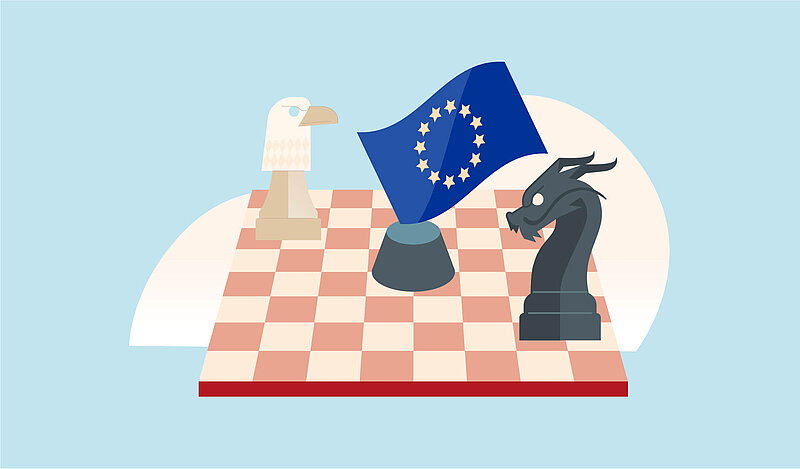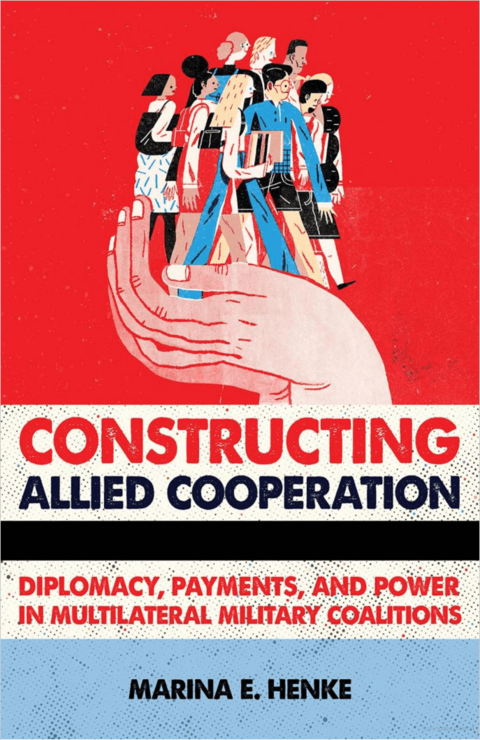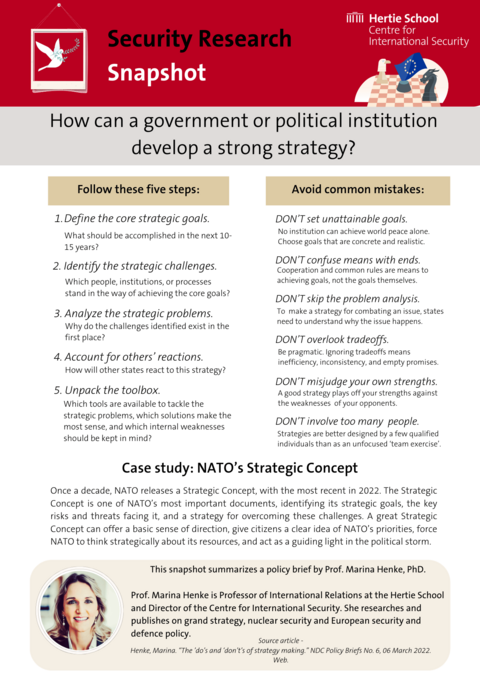
We define grand strategy as an organising principle that is consciously held and used by decision makers to guide foreign policy. It represents the highest level of long-term political, diplomatic, military and economic statecraft and sets the parameters for day-to-day policies and responses to crises and contingencies. It clarifies which threats and challenges should receive the most resources, which allies and international institutions are most reliable, which battles one might and perhaps should fight, and which ones to avoid at all costs.
Our research at the Centre for International Security focuses, in particular, on the various grand strategic postures Europe (and Germany) can adopt in an era shaped by increased great power competition and the weakening of long-standing alliances.
We address the following key challenges:
- How does Europe respond to a potential US retrenchment or withdrawal from the continent?
- How to navigate an ever-intensifying confrontation with Russia?
- What's the stance on looming tensions in the Asia-Pacific between the United States and China?
- How to address the escalating chaos in the Middle East and North Africa and the persistent threat of terrorism?
Constructing Allied Cooperation: Diplomacy, Payments, and Power in Multilateral Military Coalitions by Marina E. Henke
"Constructing Allied Cooperation" critically examines how states form multilateral military coalitions in response to global threats like terrorism and weapons of mass destruction. It challenges the assumption that these coalitions emerge naturally, showing instead that they are strategically crafted by pivotal states through their diplomatic networks, a process termed "diplomatic embeddedness." This analysis, based on both qualitative and quantitative research of 80 coalitions, underscores the deliberate use of diplomatic influence in building effective alliances.



